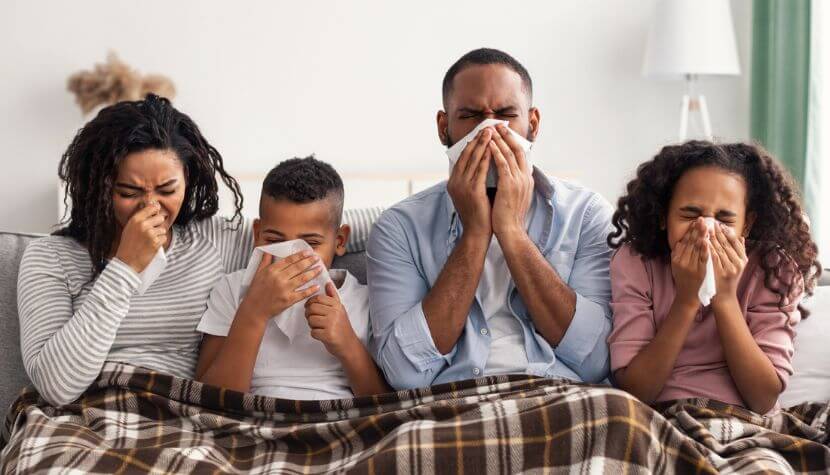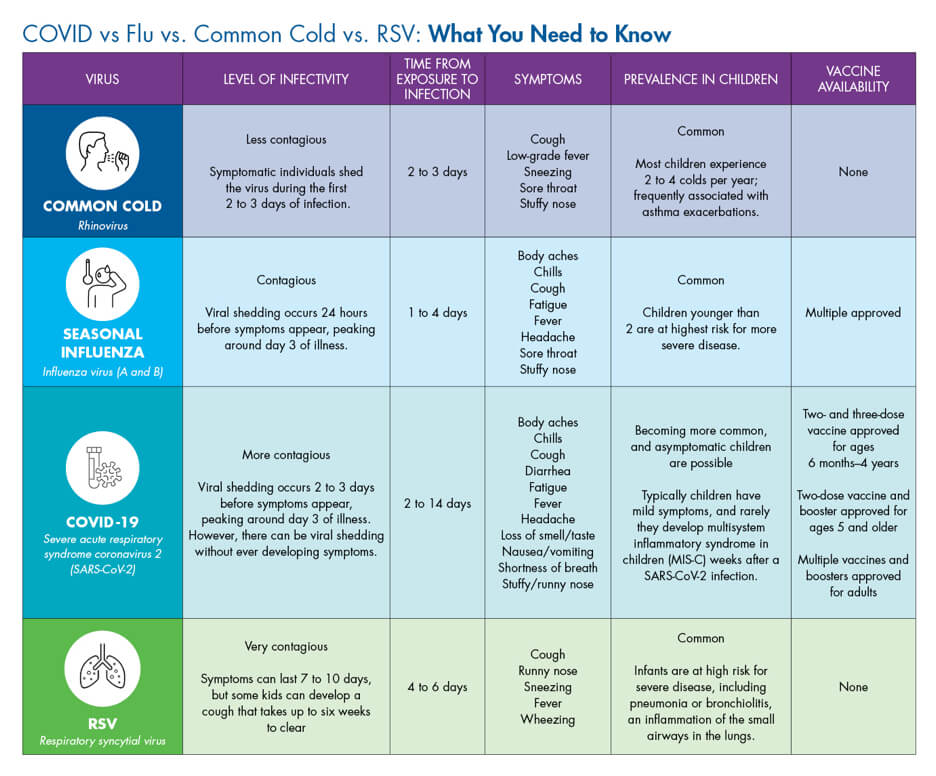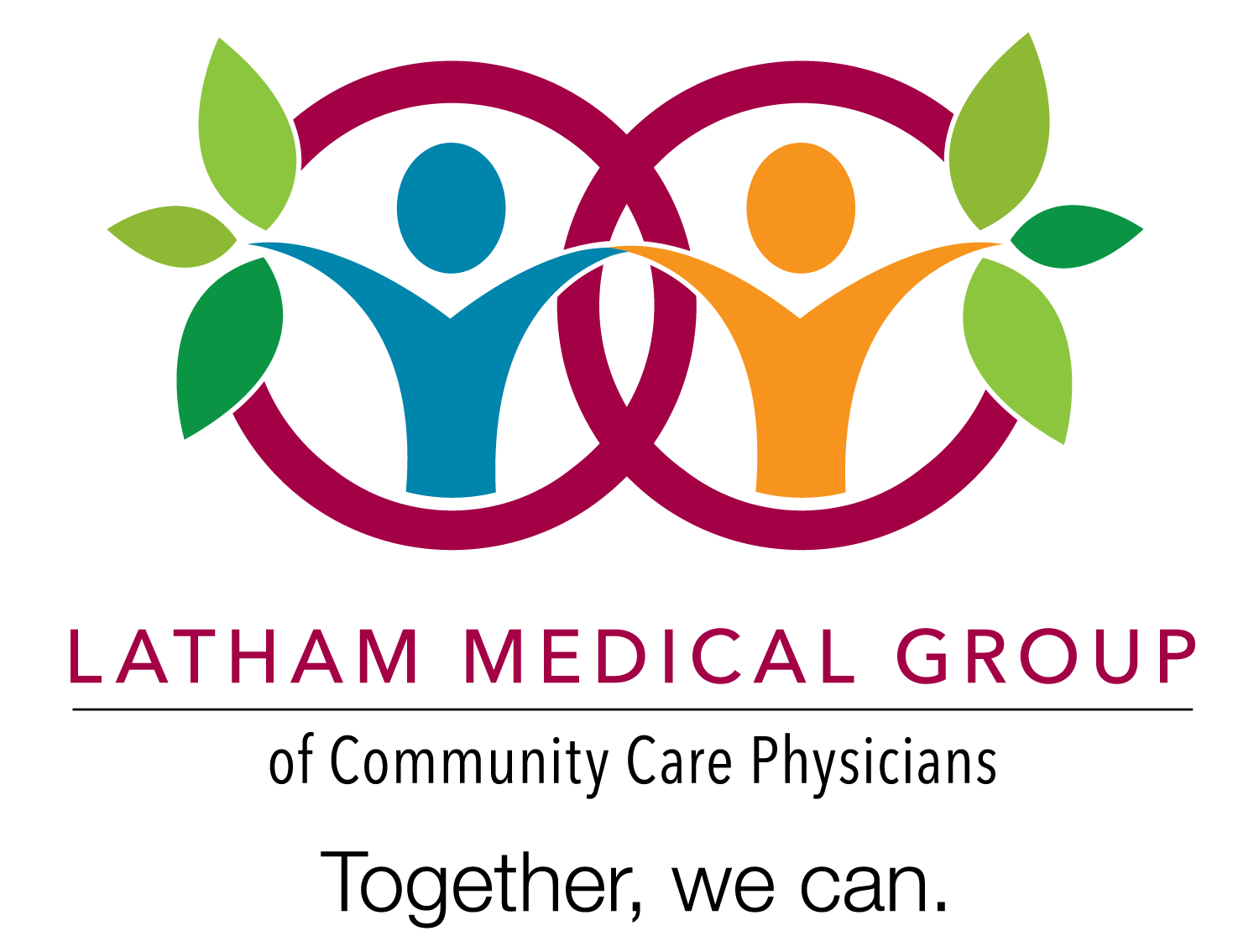
RSV, flu, and COVID are respiratory viruses. These viruses affect your respiratory system — the network of tissues and organs that help you breathe. Respiratory infections occur year-round, but there is always a massive increase in these infections during the colder months when people spend more time inside. There has been increasing concern about a “tripledemic” of respiratory illnesses that may emerge this winter.
“Tripledemic” refers to:
- RSV (Respiratory Syncytial Virus)
- Influenza (Flu)
- COVID
During the upcoming winter months, it helps to know the common symptoms and how to avoid spreading illness to those around you.
Understand the Three Viruses
With RSV on the rise, COVID cases still increasing, and flu season beginning, understanding the difference between these common respiratory infections and prevention is even more important.
According to the CDC, flu, COVID, and RSV are caused by different types of viruses. However, they have many similarities, especially when it comes to symptoms. All three of these viruses:
- Have common symptoms
- Affect a person’s respiratory system
- Are contagious
- May cause mild to severe illness

What is the difference between the flu, COVID, and RSV?
The flu and COVID are both contagious respiratory illnesses caused by different viruses. According to the CDC, COVID spreads more easily than the flu. In addition, COVID can cause more severe illness in some people than the flu. Also, people infected with COVID may take longer to show symptoms and may be contagious for extended periods. For RSV, most people recover in a week or two, but it can be serious, especially for infants and older adults. RSV is the most common cause of bronchiolitis (inflammation of the small airways in the lung) and pneumonia (infection of the lungs) in children younger than one year of age in the United States.
How do I protect myself from getting these viruses?
Fortunately, you can take steps to protect yourself and your family from getting COVID, the flu, and RSV.
Flu Prevention Tips
Get a flu shot! You can decrease your odds of contracting the flu by getting vaccinated A-S-A-P. The flu shot is designed to protect against that year’s anticipated most common flu strains, so it’s essential to get your flu shot each year. If you haven’t gotten your flu shot this year, contact our office to schedule your flu vaccine appointment today. The CDC also recommends everyday preventive actions (like staying away from people who are sick, covering coughs and sneezes, and frequent handwashing) to help slow the spread of germs. And if you do get the flu, the vaccine is highly effective in lessening the symptoms, and be sure to take flu antiviral drugs if your PCP prescribes them.
COVID Prevention Tips
Vaccinating and following CDC guidelines can reduce the risk of contracting COVID. It’s always important to wash or sanitize your hands regularly as well.
RSV Prevention Tips
There are steps you can take to help prevent the spread of RSV. If you have cold-like symptoms, you should:
- Cover your coughs and sneezes with a tissue or your upper shirt sleeve, not your hands.
- Wash your hands often with soap and water for at least 20 seconds.
- Avoid close contact, such as kissing, shaking hands, and sharing cups and eating utensils with others.
- Clean frequently touched surfaces such as doorknobs and mobile devices.
Ideally, people with cold-like symptoms should not interact with children at high risk for severe RSV disease, including premature infants, children younger than two years of age with chronic lung or heart conditions, children with weakened immune systems, or children with neuromuscular disorders. If this is not possible, you should carefully follow the above prevention steps and wash your hands before interacting with such children. You should also refrain from kissing high-risk children while they have cold-like symptoms. Parents of children at high risk for developing severe RSV disease should help their child, when possible, do the following:
- Avoid close contact with sick people.
- Wash their hands often with soap and water for at least 20 seconds.
- Avoid touching their face with unwashed hands.
- Limit the time they spend in childcare centers or other potentially contagious settings during periods of high RSV activity. This may help prevent infection and the spread of the virus during the RSV season.

